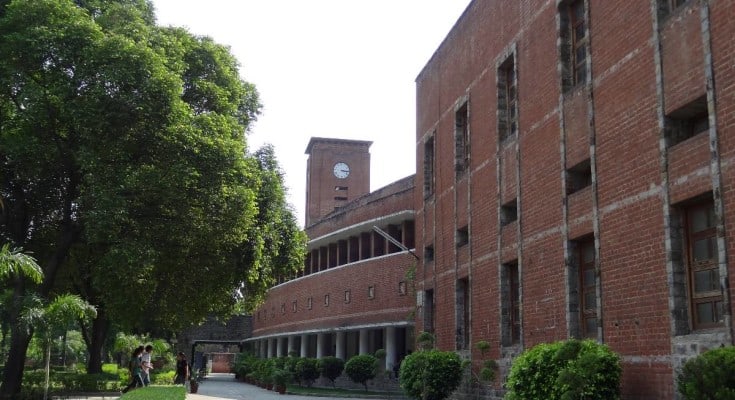The SRCC Administration cancels North East Cell’s panel discussion on the grounds of misinformation and violence mere hours before the event.
On 23 January 2020, the North-East cell of Shri Ram College of Commerce (SRCC) was going to conduct a panel discussion on “Why the North-East is Protesting,” where the cell wanted to create awareness about the ongoing protests in the North-East against Citizenship (Amendment) Act. However, after concerns of violence, the administration canceled the event a mere few hours before.
The speakers invited were academic scholars and journalists, among which two were faculties of the University itself. Apparently, the administration convened an emergency meeting and without any prior information to the organisers of the Program and the Heads of the Cell, called off the Program.
The statement released by the North-East Cell says, “The event scheduled to take place today, organised by the North-East cell SRCC stands cancelled by the administration. In an emergency meeting held mere hours before the event, the Administration and Dr. Simrit Kaur, the Principal, informed us that the event is cancelled due to unavoidable circumstances. We were told that they received information about the possibility of violence on campus, if the event was to take place. We were also told that there was no balance in our panel and all our speakers had the ‘same bent of mind’.”
“They also suggested this event be conducted at a later time and said it was unwise to have the event in this climate. We insisted that this was not a politically motivated event and that it was conducted because there exists a complete lack of awareness about the North-East protests in the College. This discussion was the need of the hour which garnered immense support and we were expecting a large crowd of students all over the campus.” adds the statement.
In the letter by the Students’ Union to the Principal of the College, the Union cites ‘violence and misleading information’ as the main reason for the cancellation of the event.
The Letter sent by the Students’ Union said, “The North-East society of SRCC is conducting a seminar on the Citizenship (Amendment) Act today (23.1.2020) in room no:2. This seminar is based on a one-sided ideology on the CAA act which may indulge violence and misleading information among the students. Furthermore, the Government has already circulated to educational institutions regarding spreading awareness about the facts and right information about CAA. Being a responsible institution, SRCC must not accept this seminar which is against the norms of social welfare. So, the (The Students Union) considering the interest of the majority, request you to cancel the permission to host the seminar. If this request of ours is subject to cancellation, we request you to grant permission to our seminar which will include the same kind of one-sided ideologies. Taking into consideration the benefits and well-being of everyone involved, we request you to take a favourable decision.”
However, as alleged by the Students’ Federation of India (SFI) in their statement, two days before the scheduled event, under the influence of threat of violence from Akhil Bharatiya Vidhyarthi Parishad (ABVP), the Students’ Union and the Administration pressurised the organisers to call off the event.
As told by a student to The Wire, the students attending the event also received calls from the Students’ Union to discourage the students from attending the protest.
The North-East Cell expressed their disappointment in the message circulated by the Students’ Union and said it was disrespectful towards the speakers.
“Our speakers have years of experience and research to back any statement they make, and the Union didn’t have an issue blatantly attacking their credibility. We would also like to point out that the speakers were informed by the Administration that the event is cancelled due to a technical issue,” adds the statement.
Feature Image Credits: DU Beat Archives
Satviki Sanjay



